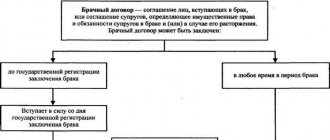Shared ownership: how to use common real estate
Fractional ownership of real estate is not an easy task, especially when it comes to selling a home or paying for utility bills. Lawyers from the Cadastral Chamber of the Udmurt Republic talk about the peculiarities of disposing of shared property.
Shared ownership is property owned by two or more persons. This type of property involves, in particular, not only the distribution of rights to own assets in shares, but also the possibility of deriving proportional income from the commercial use of property. At the same time, people who own property by right of shared ownership are obliged to bear responsibility for its maintenance, in proportion to their share.
Possession and use of property in shared ownership is carried out by agreement between all its participants. If the participants in common shared ownership cannot reach an agreement on the conditions of ownership and use of common property, then the dispute is resolved in court.
Under what conditions can shares be allocated?
The allocation of a share in kind is a special procedure that results in a transition from common property to individual property. The allocation of a share is usually carried out in situations where there is a need to sell real estate or part of it; the desire to abolish restrictions and inconveniences based on joint ownership of one living space; the desire to dispose of one’s part of the property individually or the need to resolve conflicts or disputes with other apartment owners.
A participant in shared ownership has the right to demand the allocation of his share from the common property (Article 252 of the Civil Code), however, for this, certain requirements must be met. A share in the ownership of property that is in shared ownership can be allocated in kind by agreement between all owners, or in court. A citizen can exercise his right to dispose of the area at any convenient moment: the time that has passed since the day he took ownership does not matter.
The agreement between the participants in shared ownership must determine the method and conditions for allocating the share of one of them. As a general rule, when allocating part of the property, the value of such property should be proportional to the allocated share. If the value of the allocated property is disproportionate to the share, the difference must be compensated by a monetary payment or in another form agreed upon by the parties.
The above agreement is drawn up according to the number of co-owners of real estate and must be signed by each of them.
For obvious reasons, property cannot always be actually divided. In this aspect, the situation with the possibility of allocating a share in kind in a residential building looks more or less simple, somewhat more complicated in a multi-room apartment, and almost impossible in situations where it is necessary to allocate a share in kind in a one-room apartment.
According to the requirements of regulations, when allocating a share in an apartment, the allocated part of the living space must be completely isolated and independent from the rest of the apartment, have its own entrance, bathroom, and must remain suitable for habitation and intended use.
It is possible to allocate a share in a residential building only if each person who allocated the share has independent access to the land plot. Such an allocation can be made after the reconstruction of the residential building upon receipt of all necessary permits and approvals.
When allocating part of a land plot, you should remember the minimum permissible sizes of land plots. These sizes vary in different municipalities. On the territory of most municipalities of our republic they amount to 400 square meters. m. Thus, the newly formed land plot as a result of the allocation of a share and the plot from which it was allocated cannot be less than this size.
Features of the sale of shared ownership
First of all, it is worth remembering that such a property cannot be sold without the consent of all owners: in the purchase and sale agreement, all owners will act on the side of the seller. In addition, they all have a pre-emptive right to buy out a share from one of the co-owners on equal terms and at the same price. This means that if one of the owners of a share decides to sell it to an outside party, he must provide all joint owners with written notice of the sale, indicating the price and other terms on which the share is being sold. A month is given to think about it. If during this time no one expresses an intention to buy out the share, then the seller has the right to carry out the transaction and sell his part to anyone. Without following this procedure, the transaction may be declared invalid in court. The co-owners must formalize their refusal to purchase in writing. If there is a written refusal from all owners before the expiration of the month, the share in the apartment can be sold earlier.
How to register new tenants in an apartment if it is in shared ownership?
The owner of a share in an apartment has the right to register in it without the consent of other co-owners, however, registration by the owner of a share in favor of third parties in the apartment will require the consent of other shared co-owners.
Does a transaction for the sale of a share require notarization?
Alienation of shares of an apartment that is in common ownership for any type of transaction (purchase and sale, exchange, gift) is subject to mandatory notarization. This is necessary in order to prevent cases of apartment raiding. The main thing that the notary checks is whether the pre-emptive right to purchase of the remaining co-owners of the apartment has been respected, if we are talking about a purchase and sale transaction.
The notary will also check whether there are other applicants for a “piece” of the apartment, whether the owner is legally capable, whether he is bankrupt, and whether his passport is valid.
How can you sell the entire apartment if it is in shared ownership?
For such transactions, a mandatory notarial form is established. Let's say that there are three co-owners of the apartment, each of whom is ready to sell his 1/3. There is also a third party who wants to purchase this entire apartment. All parties to the transaction must appear before the notary. He will request the documents necessary for the transaction, including information from the Unified State Register of Real Estate, make sure that all co-owners are legally capable, that there is no defect of will, and so on. If the owners of shares contact the notary at the same time, then in this case the notary will not require documents confirming that the co-owners have notified each other of their intention to sell their shares. In this case, the agreement for the sale of the apartment by all co-owners can be concluded at their request in the form of a single document. If the co-owners do not approach the notary together, but at different times, the notary will require confirmation that all owners of the apartment have been notified that the co-owner wishes to sell his part.
When concluding a purchase and sale agreement, it lists the names of all sellers - co-owners. If circumstances require it (for example, the co-owners are strangers to each other or are in conflict), then the contract specifies how much each of them receives when completing the transaction.
On what basis do co-owners pay for monthly housing and communal services - all separately or at once?
Participants in shared ownership are required to participate in the payment of taxes, fees and payments for housing and communal services in proportion to their share. They can determine who pays how much on their own, and if no agreement is reached, in the manner established by the court.
Normative base
The main legal document that regulates the allocation of a share of real estate in kind under common ownership is the Civil Code of the Russian Federation.
It lists ways to resolve the issue of dividing shares in joint property, namely:
- by contacting the justice authorities;
- by drawing up a voluntary agreement on the allocation of shares.
In Art. 252 of the Civil Code of the Russian Federation also establishes the right to compensation for the value of a share to the owner if its allocation in kind is not possible.
However, in addition to the norms of the Civil Code of the Russian Federation, when deciding on the division of shares, it is also necessary to take into account the norms of the Housing Code of the Russian Federation (when allocating part of an apartment in kind, for example), the Land Code of the Russian Federation (when allocating a share of a land plot), as well as regional by-laws.
In what cases can an agreement be drawn up?
The main requirement set by the legislator for an agreement on the division of property in kind is voluntary consent. However, in addition to this, it is also necessary to ensure that the premises are isolated from each other and have a separate entrance (in the case of land plots, a driveway).
Expert opinion
Stanislav Evseev
Lawyer. Experience 12 years. Specialization: civil, family, inheritance law.
If everything is quite simple with plots of land, then in residential and industrial premises it is often necessary to carry out redevelopment, which must be approved and, accordingly, new technical documentation must be obtained from the BTI.
If there are more than two co-owners of a property, then it is allowed to allocate a share in kind to only one of them. The rest, if desired, can be co-owners of the remaining area on the basis of joint ownership.
If division is impossible for one reason or another (for example, the disputed object is a one-room apartment), then compensation of the cost of the share of one (several) owners to another (others) is allowed. To determine the amount of payments, specialized assessments are carried out, or the parties simply agree among themselves.
If at least one of the owners does not agree to the division of property in kind, then it is only possible by going to court and only if there are compelling reasons (for example, lack of information about the location of the co-owner)
How to correctly draw up an agreement on the allocation of a share in kind
This document is drawn up in simple written form and does not require notarization. However, it is often difficult for a legally unprepared person to do this.
There is no unified form of agreement on the allocation of shares. Let's consider what information should be contained in the document.
| No. | Agreement details |
| 1 | full passport details of each participant in the transaction |
| 2 | size of the share of all co-owners |
| 3 | an exact description of the share that goes to each participant in the transaction (size, location, availability of access roads, separate entrance, etc.) |
| 4 | information about whether compensation was paid to someone for the lost part of the share that was not subject to allocation in kind |
| 5 | information on the basis of the right to property of each owner |
| 6 | detailed description of the property (size, location, number of floors, number of rooms, buildings, etc.) |
| 7 | an indication of who is financially responsible for the re-registration of the right in Rosreestr |
| 8 | other information having significant legal force |
What is a share in the right of common shared ownership?
This is part of the right of ownership of common property (clause 2 of Article 244 of the Civil Code of the Russian Federation).
A share in ownership does not mean a physical part of a thing.
For example, if some part of the car is accidentally damaged, then the costs of restoring it must be borne by all owners in proportion to their shares.
This conclusion is found in the scientific literature, but it can also be drawn from Art. 249 of the Civil Code of the Russian Federation.
This rule obliges each co-owner to participate in the costs of maintaining and preserving the common property in proportion to his share.
Regardless of the size of the share, each co-owner can own, use and dispose of the thing together with other co-owners by their agreement. In addition, he can dispose of his share - for example, sell it (Article 246, paragraph 1 of Article 247 of the Civil Code of the Russian Federation).
How to determine the size of a share in the right of common shared ownership
The shares of the participants are equal if they cannot be determined by law and the co-owners have not established their size by agreement (clause 1 of Article 245 of the Civil Code of the Russian Federation).
All participants can establish the procedure for determining and changing shares depending on their contributions to the formation and increase of common property (clause 2 of Article 245 of the Civil Code of the Russian Federation).
For example, two co-owners of a building with shares of 50% each can agree that one of them will make an extension to the building at his own expense, after which his share will increase to 60%, and the share of the second will decrease to 40%.
The share of a co-owner may increase if he, at his own expense, has made inseparable improvements to the property and has not violated the established procedure for its use, that is, other owners have given consent to this.
Separable improvements, as a general rule, are the property of the participant who made them and do not increase the share (clause 3 of Article 245 of the Civil Code of the Russian Federation, clause 24 of the Review of Judicial Practice of the Supreme Court of the Russian Federation No. 1 (2017)).








